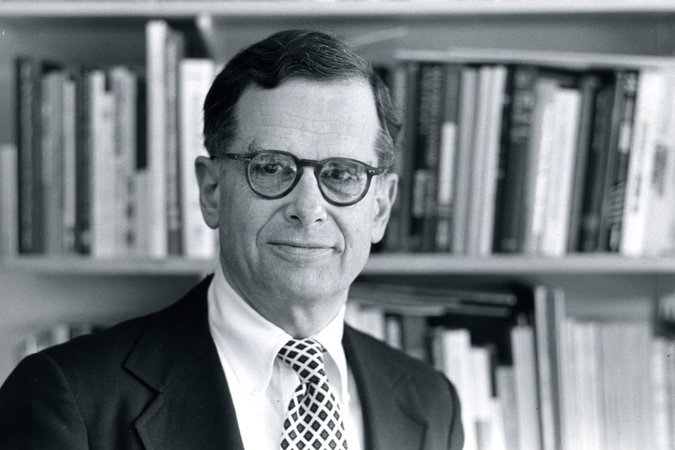His 1957 article “The Simple Analytics of Welfare Maximization” became a standard tool for teaching microeconomics, or the economic impact of individual decision-making.
In 1966, as deputy special assistant to the president for national security affairs under Mr. Rostow, Professor Bator drafted an early version of a speech in which Johnson signaled a shift from coexistence to “peaceful engagement” with the Soviet bloc.
Besides easing trade constraints and cultural exchanges, Johnson held out the prospect of mutual military reductions if Cold War relations between East and West thawed.

At the same time, while Johnson affirmed support for NATO, he sought unity among the Western allies by ignoring President Charles de Gaulle’s decision to withdraw French troops from NATO’s integrated command.
When he left the White House, where his portfolio included monetary policy, tariffs and curbing nuclear proliferation, The Economist wrote: “On most of these matters most of the time, a thread of lucidity, consistency and balance has been traceable in the administration’s handling, and Mr. Bator has had a lot to do with it.”
Francis Michel Bator was born on Aug. 10, 1925, in Budapest. He fled to the United States with his family in 1939 as the pro-fascist Hungarian government edged closer to Germany. In New York, his father, Victor, was a banker, writer, teacher and publisher of a newspaper for Hungarian expatriates. His mother was the former Franciska Sichermann.
Francis Bator was being shipped to the Pacific as an Army infantry officer when Japan surrendered in 1945.
Advertisement
Continue reading the main story
He considered majoring in literature in college, but switched to economics and earned a bachelor of science degree in 1949 from the Massachusetts Institute of Technology, where he later received a doctorate in economics.
He and his wife, the former Micheline Martin, separated in 1972. Besides her and their son, he is survived by a daughter, Nina Bator Moss; his partner, Jae Roosevelt; and four grandchildren.
His 1960 book, “The Question of Government Spending,” was described by The New York Times as one of the seven that shaped President John F. Kennedy’s approach to the presidency. He was an adviser to the Agency for International Development before moving to the White House early in 1964 to work for Mr. Bundy, the national security adviser.
While Professor Bator was opposed to widening the Vietnam War, he later sought to clarify if not defend Johnson’s rationale for doing so. “The war deprived the Great Society reforms of some executive energy and money,” he wrote in a 1997 paper.
“But Johnson believed — and he knew how to count votes — that had he backed away in Vietnam in 1965, there would have been no Great Society to deprive,” Professor Bator added. “It would have been stillborn in Congress.”
After he left the White House, in part because of the war, he issued a warning, telling The Boston Globe, “The real nightmare for all of us, not over the next few years but over the next 25, consists in a world split between a rich minority and an enormous majority of semi-industrialized poor — colored, angry and equipped with modern strategic arms.”
Continue reading the main story
Article source: https://www.nytimes.com/2018/03/20/obituaries/francis-bator-influential-white-house-economist-dies-at-92.html?partner=rss&emc=rss
Speak Your Mind
You must be logged in to post a comment.